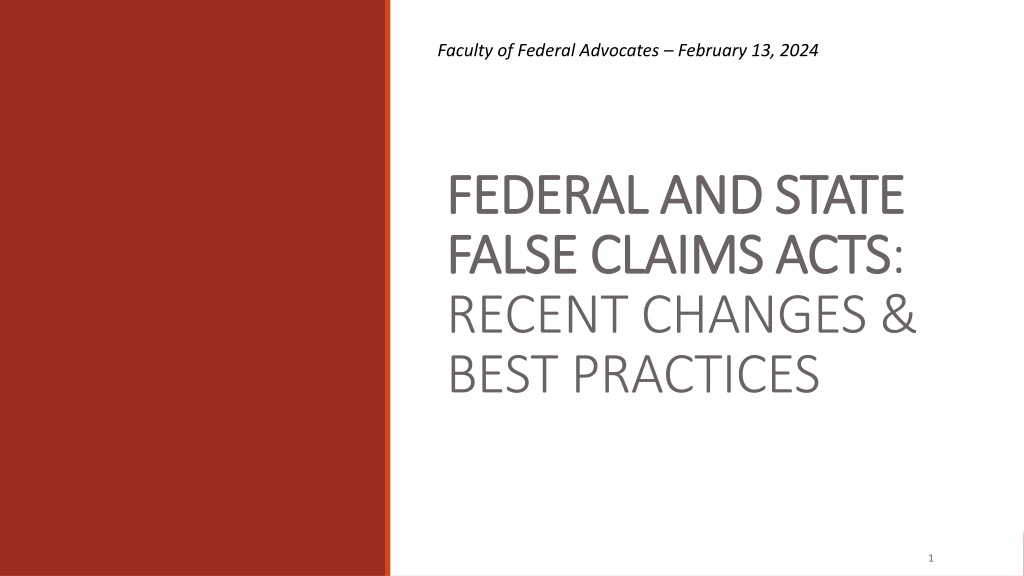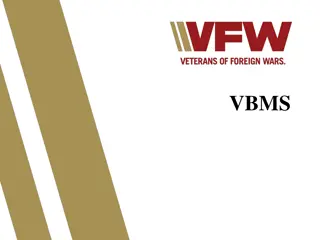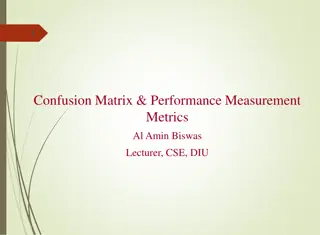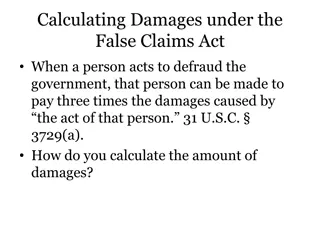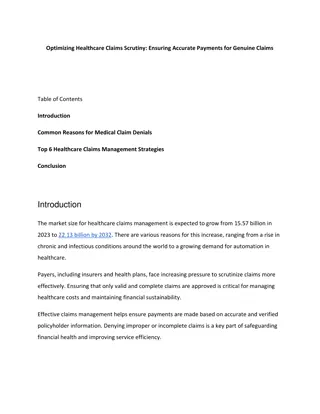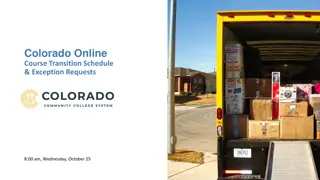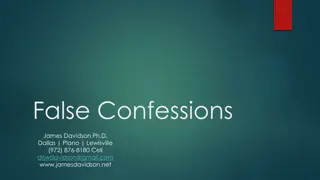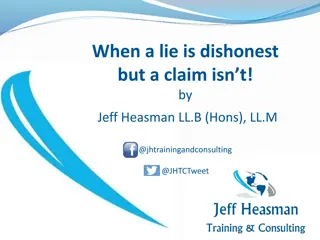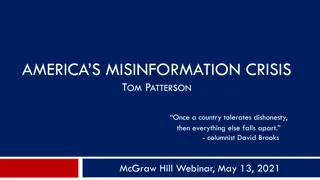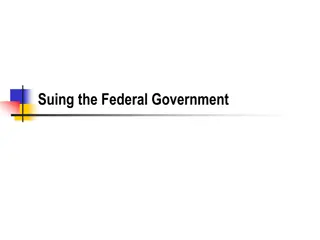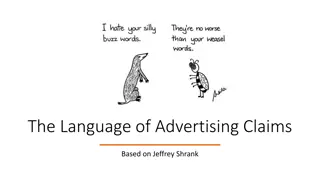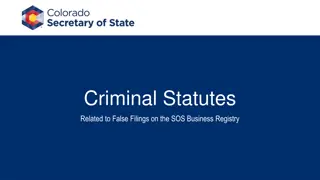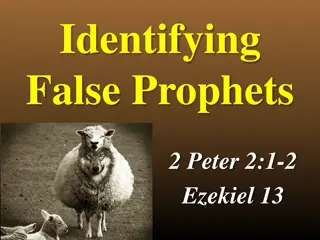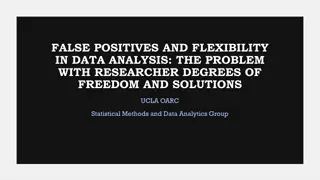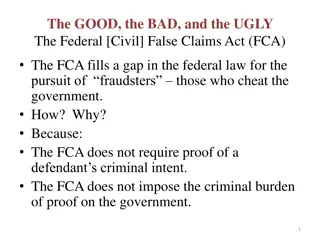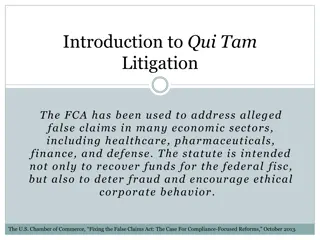Understanding Colorado False Claims Act: Recent Changes and Best Practices
Colorado False Claims Act (CFCA) mirrors the federal False Claims Act, aiming to safeguard public funds. The act covers various entities and imposes penalties for false claims. Liable defendants face significant damages, including penalties, treble damages, and attorneys' fees. Cooperation can lead to reduced penalties. Effective date: August 10, 2022.
Download Presentation

Please find below an Image/Link to download the presentation.
The content on the website is provided AS IS for your information and personal use only. It may not be sold, licensed, or shared on other websites without obtaining consent from the author. Download presentation by click this link. If you encounter any issues during the download, it is possible that the publisher has removed the file from their server.
E N D
Presentation Transcript
Faculty of Federal Advocates February 13, 2024 FEDERAL AND STATE FEDERAL AND STATE FALSE CLAIMS ACTS FALSE CLAIMS ACTS: RECENT CHANGES & BEST PRACTICES 1
Colorado False Claims Act MELISSA KESSLER, ASSISTANT DEPUTY AG, CORPORATE FRAUD BEN GILLIG, ASSISTANT AG, FALSE CLAIMS UNIT COLORADO DEPARTMENT OF LAW COLORADO DEPARTMENT OF LAW 2
Presentation to the Faculty of Federal Advocates. February 13, 2024. This presentation is for educational purposes; its content does not necessarily represent the statements and opinions of the Colorado Attorney General. 3
The CFCA is a robust anti-fraud statute designed to ensure that public funds are used for their intended purposes. What is the Colorado False Claims Act (CFCA)? The CFCA mirrors, but is not identical to, the federal FCA. Effective date: August 10, 2022. Broad application to public funds administered or used by the state, state agencies, local governments, school districts, special districts, public higher education institutions, and private entities that operate publicly-funded programs, among others. Codified at C.R.S. 24-31-1201, et seq. 4 CONFIDENTIAL - LAW ENFORCEMENT ONLY
1. Defendant makes a claim for payment or creates a record in furtherance of a claim for payment. Reverse false claim. 2. The claim or record is false. What is a false claim ? 3. The defendant knows the claim or record is false. The Act defines knowledge. No specific intent required. 4. The falsity is material to payment of the claim. False record or statement resulting in underpayment of unemployment insurance premiums. 5
The Act provides significant damages against liable defendants, including: Per-claim penalties between $12,410 and $28,410. Treble damages. Attorneys fees and costs. CFCA Damages Damaged public entities are, by statute, entitled to compensation for their losses. 6
Penalties and damages may be reduced to reward defendant cooperation. Cooperation means: Defendant furnished the responsible officials with all information about the CFCA violation within 30 days of learning of a potential violation; At the time the defendant furnished the information, the defendant did not have actual or constructive knowledge of the existence of an investigation into the violation; and The defendant fully cooperated with any investigation by the state. CFCA Damages Reduced damages: 1.5x damages and $5,900 to $11,800 in penalties per violation if defendant cooperates before criminal prosecution, civil action, or administrative action with respect to the violation. 2x damages and $7,800 to $15,700 in penalties per violation if defendant cooperates during criminal prosecution, civil action, or administrative action with respect to the violation. 7
The Attorney General is charged with enforcing the CFCA statewide and in federal courts around the country. How does the AG enforce the CFCA? The AG has significant pre-suit investigatory powers, including the power to subpoena documents and compel testimony. The AG prioritizes cooperation with law enforcement partners. 8
The AGs Enforcement Procedure The AG s Enforcement Procedure Initial Case Assessment Is there reasonable cause to believe a violation of the CFCA has or will occur? Voluntary requests for information. Formal Investigation Compulsory process available. Merits of the alleged false claims. Enforcement Action or Settlement File or intervene in federal or state lawsuit. AOD or settlement. May decline to pursue at any point. 9
Private whistleblowers (called relators) can file lawsuits on behalf of the state to recover for false claims. Relator lawsuits are filed under seal and served on the AG s office. The False Claims Unit investigates and determines whether to intervene in the lawsuit. What role do whistleblowers Relators are entitled to a portion of the recovery if their suit is ultimately successful. 15-25% of recovery if the state intervenes. 25-35% of recovery if the state does not intervene. Percent based on relator s substantial contribution. play? 10
Creates a cause of action for retaliation against relators for a list of protected activities related to the CFCA. Retaliation broadly defined. Protected activities broadly defined to include conducting or assisting with an investigation into a CFCA action, meeting with investigators, providing investigators or relator s counsel with confidential information, or filing a qui tam action. Relator protections Relators entitled to compensation and attorneys fees. 11
Colorado Department of Law Consumer Protection Section False Claims Unit Please reach out Please reach out with questions with questions Ben Gillig, Assistant Attorney General 720-508-6098 Ben.gillig@coag.gov CONFIDENTIAL - LAW ENFORCEMENT ONLY 12
Panel Discussion 1. Differences between federal and state false claims statutes and enforcement regimes. 2. Trends in false claims cases over the last three years: Post-COVID trends. Trends in who becomes a relator. Trends in types of cases. 3. Good practices for interaction with different parties in a false claims case: Federal officials. State officials. Relators and their lawyers. Target/defendant companies and their lawyers. 4. Good practices for preventing false claims. 13
